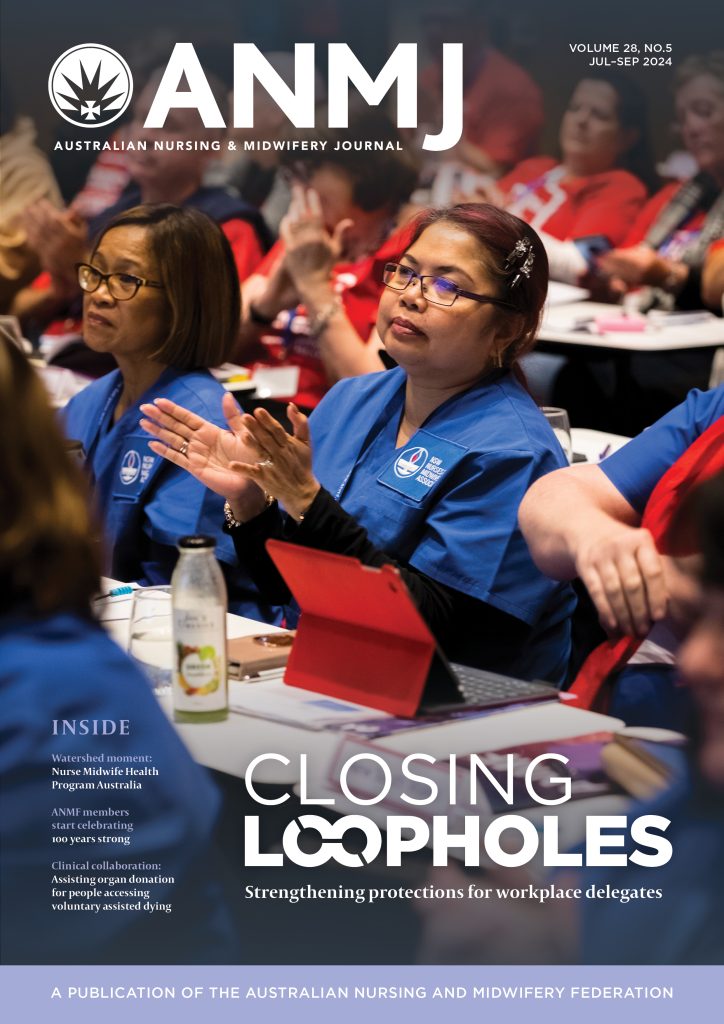Mr Cox was a 92 year old man who lived alone and had no family. He did however, have good neighbours and a case manager from the Brotherhood of St Laurence and with their assistance he was able to remain in his own home despite some ill health.
In July 2015 Mr Cox was admitted to an aged care facility for respite care where he told the nurses he was only staying for the colder months and would be returning home. This is where Kumar, the nurse unit manager (NUM), met Mr Cox for the first time and discovered that he lived alone in his own home, had no family – and had not made a will.
Shortly after his admission Kumar accompanied Mr Cox home in a taxi to collect some of his belongings and $4,500 cash. After doing some research Kumar took it upon herself to buy a will kit from the local post office and gave it to Mr Cox to write his will. She insisted that a nurse and another staff member witness the signing of the will despite the distress this caused the staff member who complied with the request only because she viewed it as a direct order from her NUM.
The tribunal noted that the NUM had a position of power and trust and manipulating the staff in this way was an abuse of this position. Furthermore, witnessing this document was in breach of the organisation’s policy that did not allow staff to witness legal documents on behalf of patients, especially wills.
The will named Kumar as the executor and sole beneficiary of Mr Cox’s estate with an estimated value exceeding $1,000,000. The witnesses did not know that Kumar had been named as the sole beneficiary, in fact Kumar told them that Mr Cox had named two nephews in Ireland as benefactors to the will and later advised that the will had been torn up.
Mr Cox died in August 2015. Although not at work at the time of his death, Kumar insisted that the nurse immediately search his room and belongings for his house key causing distress to the staff member who felt this to be disrespectful while the deceased’s body remained in the room as the search took place. A grant of probate was made in 2015 and the title and ownership of Mr Cox’s property was transferred to Ms Kumar. The will was not contested. In 2016 Kumar sold the house for $1,117,000.00. The notification regarding Kumar’s conduct was raised by six concerned neighbours (on behalf of a much larger group of friends and neighbours) regarding the circumstances that led to the deceased making a will in favour of the NUM whom he had only recently met and whether other vulnerable residents could be at similar risk.
It was established that the actions of escorting Mr Cox home, securing a blank will and organising its execution were beyond the duties of the NUM whose role was being primarily responsible for the overall provision of nursing services rather than being involved in the delivery of day to day care to residents. In fact, this was recognised as a significant departure from her professional responsibilities and more in line with the role of his case manager. An aggravating factor in this case was Kumar’s retention of the proceeds of the estate which was viewed as her willingness to profit from her own acknowledged wrongdoing.
The tribunal was clear that this case was not about the circumstances of the patient’s death where evidence showed he received a high standard of care, nor was it about the validity of the will. It was about Kumar’s conduct and the professional and ethical obligations nurses have towards their patients, colleagues, the profession and the public.
Kumar was found guilty of professional misconduct for transgressing boundaries through over involvement with a patient, failing to manage a conflict of interest where she obtained a benefit in circumstances where she knew or had a reasonable belief that she was going to be named as a beneficiary under the will and her conduct towards her colleagues.
The practitioner was disqualified from applying for registration for a five-year period and prohibited from providing any health service involving provision of care to people in residential aged care or receiving community based aged or disability care in any capacity for the same period.
This case not only highlights how the abuse of power and a failure to follow professional codes and standards impacts upon the practice and confidence of those working in the profession but also the detrimental effect this has on the public’s trust in the profession. It is also a further reminder of how important it is to be familiar with organisational policy and to ensure that staff meet their contractual obligations to their employer by adhering to these.








